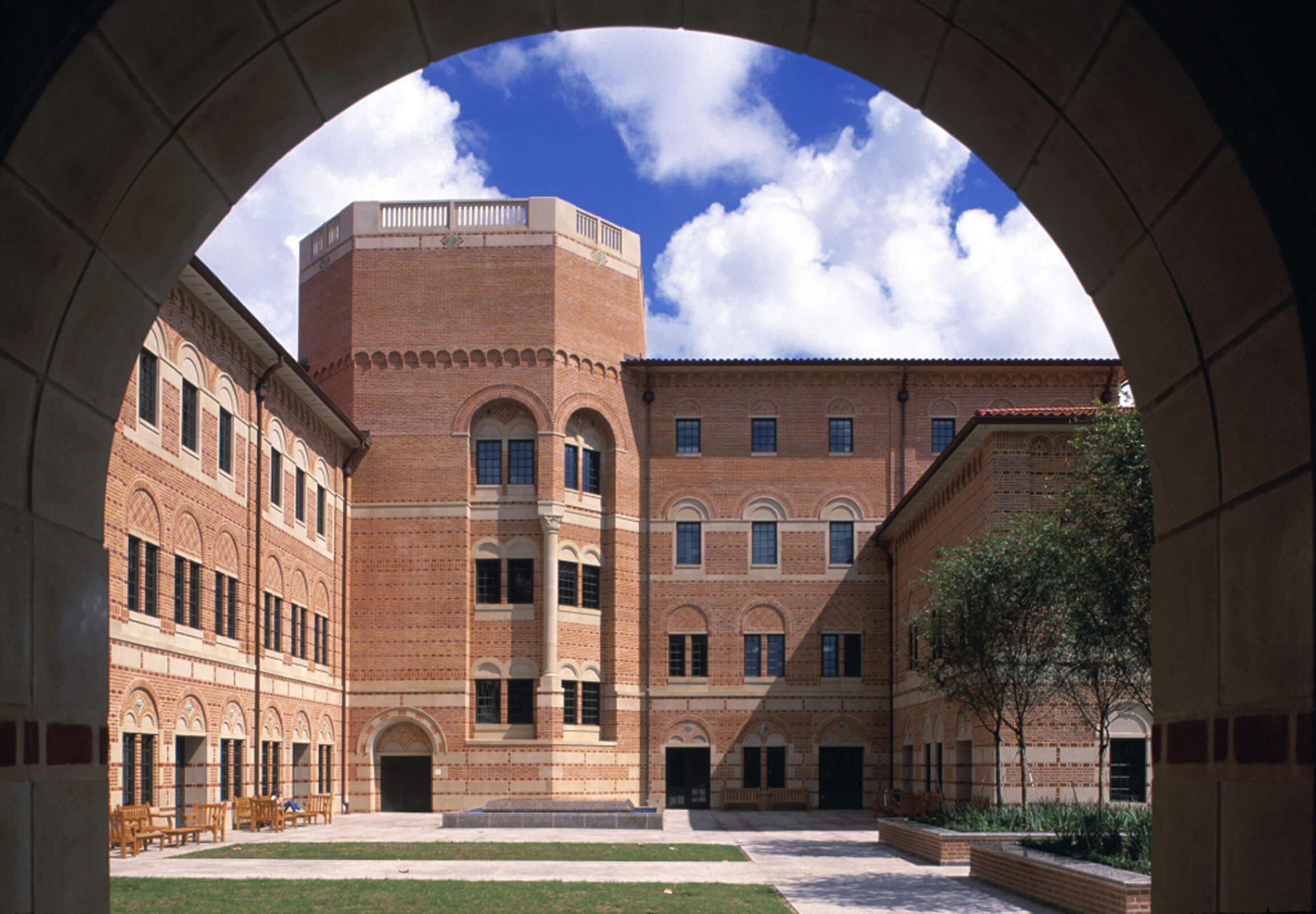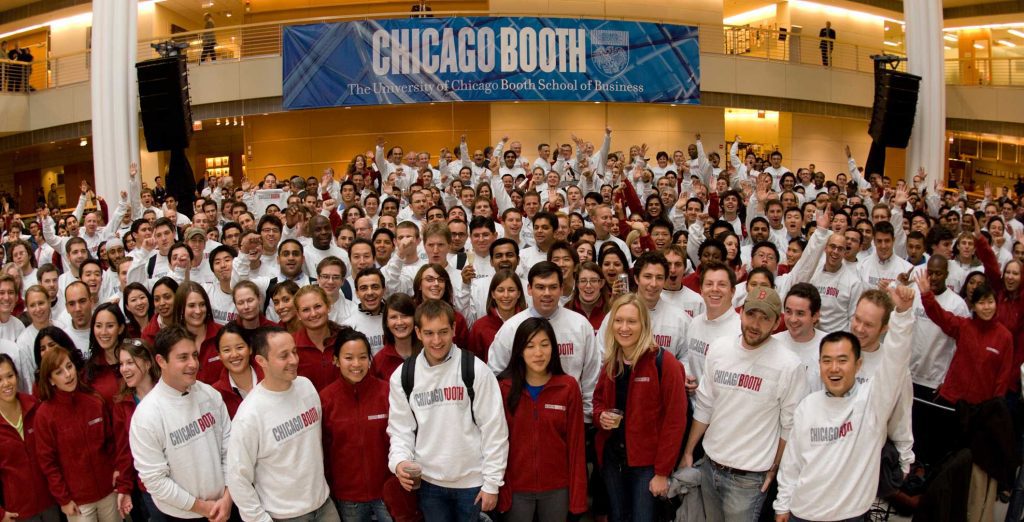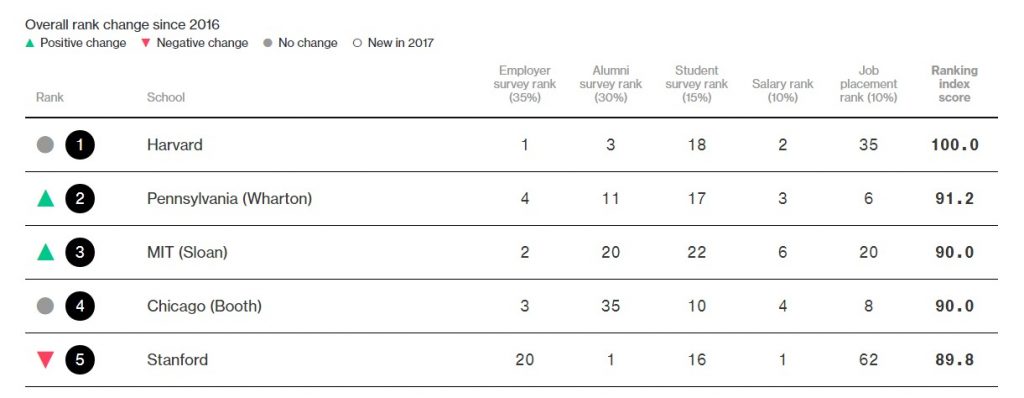The Best Healthcare Management MBAs in Texas

As the nation’s second-largest field of employment, healthcare is a fast growing and rapidly changing industry expected to be worth trillions in the near future. A job in healthcare can represent any number of opportunities from working in a hospital to working for a government agency, insurance organization, consulting firm, group practice, pharmaceutical company, or biotechnology firms. In each of these areas, there’s a massive need for well-qualified individuals who can respond to critical problems. That’s where a healthcare management career can be valuable.
As a healthcare manager, you’ll be responsible for managing and coordinating health services while working closely with physicians and administrators to best represent your facility. It’s a rewarding career field with a positive job outlook—employment is expected to grow much-faster-than-average, according to the Bureau of Labor Statistics.
If this sounds like the career for you, one of the first steps is to earn your Healthcare Management MBA. A Healthcare Management MBA provides students with in-depth expertise on the unique elements required to work in the healthcare industry.
As for where to earn your degree, here are the best Texas healthcare MBA programs.

Dallas
Naveen Jindal School of Management – University of Texas at Dallas
In Dallas, the Naveen Jindal School of Management is known for its healthcare focus. Not only does the school offer a Master of Science in Healthcare Leadership and Management, which is a flexible evening program that can be completed in 18 to 24 months, but MBA students can also choose the Healthcare Leadership and Management concentration. This MBA concentration prepares students for leadership positions in healthcare and is a cross-functional and industry-focused option.
What makes the Healthcare Management MBA concentration stand out at Naveen Jindal is the fact that classes are taught by faculty and healthcare executives who have the specialized expertise and experience needed to train up-and-coming graduates. In addition, students can participate in the Healthcare Management Association (HMA) to cultivate industry experience, networking opportunities, and healthcare resources. The school also offers a Healthcare Management Executive MBA for current physicians who are looking to expand their skillset.
Hankamer School of Business – Baylor University
At the Baylor University Hankamer School of Business in Dallas, there’s a specialized MBA in Healthcare Administration. This degree path is offered in conjunction with the Robbins Institute for Health Policy and Leadership and gives students the opportunity to gain an interdisciplinary foundation in health services and business. The MBA program is nationally recognized, ranked 17th in the nation in 2016 by the U.S. News & World Report, and ideal for students interested in a healthcare career.
What makes this MBA program unique is that it includes a seven-month paid Executive Residency with a leading progressive health organization. During this residency, students receive guidance from well-qualified, practicing healthcare executives who give them the opportunity to apply and test their knowledge. Also, students can apply for the Executive Healthcare MBA program in Dallas and participate in the Future Healthcare Executives (FHE) student organization.
Neeley School of Business – Texas Christian University
Another opportunity for healthcare-minded MBA students in Dallas is the Healthcare MBA at the TCU Neeley School of Business. This program is designed for current healthcare professionals or individuals who are looking to enter the healthcare industry. It’s offered in partnership with the University of North Texas—Health Science Center and provides an in-depth healthcare focus.
What makes this program unusual is that students can choose a standard MBA (48 credit-hours) or an accelerated MBA (36 credit-hours) depending on their experience in business. In either case, MBA students completed 10.5 credit-hours of healthcare-specific courses as well as 9-10.5 credit-hours of additional business or healthcare electives. Some of the specialized courses include:
- Healthcare in the U.S.
- Population Health
- Legal Aspects of Healthcare
Houston
Rice University – Jones Graduate School of Business
At Rice University in Houston, there are multiple opportunities for MBA students at the Jones Graduate School of Business to develop their healthcare experience. Specifically, the school created a healthcare program that offers practical learning options and multiple healthcare electives. Some of those electives include U.S. Health Care Management, Health Care Strategy, and Health Care Operations Management.
As full-time MBA students, there’s the option to choose the health care concentration, which includes 12 credits, out of 24.5 available, focused specifically on a career in healthcare. Its unique curriculum prepares MBA students for a variety of healthcare settings including pharmaceutical, biotech, and insurance as well as hospitals and private practices. There are also many other ways to learn about healthcare at Rice University including speaker series, panel discussions, and multiple events.

The Jones Graduate School of Business at Rice University offers a wealth of healthcare MBA options, including a MD/MBA dual degree.
Cameron School of Business – University of St. Thomas
In Houston, there’s also an MBA in Health Care Administration offered at the Cameron School of Business. This program is offered in conjunction with Texas Woman’s University (TWU) and gives students the opportunity to obtain the fundamental health services management skills required for a successful career. In addition, there’s an opportunity for a dual Master of Healthcare Administration (MHA) and MBA degree. As part of the program, students take courses at both TWU and UST.
Chicago Booth, Michigan Rise in New U.S. News Business School Ranking

The new, official U.S. News & World Report ranking of the best business schools in the United States has been released, with some minor shake-ups at the top. For the second year in a row, Harvard Business School remains tied for the first overall in the ranking. However, the University of Chicago Booth School of Business officially supplanted The Wharton School at the University of Pennsylvania, which fell back from its tie at the top to third overall.
The rest of the top ten, as we previously mentioned, largely resembled last year’s U.S. News release, except for the inclusion of the Ross School of Business at the University of Michigan and the exclusion of the Yale School of Management. Surprisingly, Michigan Ross may have made the strongest showing in the newest ranking, not only managing a position in the top 10, but landing tied for seventh overall—ahead of Columbia Business School and the Dartmouth Tuck School of Business. The Yale School of Management slipped to a tie at 11th overall with Duke University’s Fuqua School of Business.
U.S. News & World Report 2019 Best Business School Rankings
| Rank | School |
|---|---|
| 1st (Tied) | Harvard Business School |
| 1st (Tied) | University of Chicago Booth School of Business |
| 3rd | The Wharton School at the University of Pennsylvania |
| 4th | Stanford GSB |
| 5th | MIT Sloan School of Management |
| 6th | Northwestern University Kellogg School of Management |
| 7th (Tied) | University of Michigan Stephen M. Ross Business School |
| 7th (Tied) | UC Berkeley Haas School of Business |
| 9th | Columbia Business School |
| 10th | Dartmouth College Tuck School of Business |
Chicago Booth, Michigan Shine Among Rising Full-Time MBA Programs

For the first time in school history, the Booth School of Business secured its place atop of the U.S. News ranking (albeit tied with HBS). In a statement, Booth Dean Madhav Rajan noted, “We are pleased to be recognized in this manner, and gratified that the recognition is across the board. We continue to strive to be the pre-eminent academic school of business.”
After its place among the top ten business schools was revealed, Michigan Ross Dean of Business Scott DeRue stated in a release, “We are excited to once again be ranked among the top 10 MBA programs in the country by U.S. News & World Report. This recognition is a testament to the extraordinary talent at Michigan Ross, our innovations in action-based learning, our partnerships with leading companies across the globe, and the most supportive alumni community in the world. We are developing leaders who have the character and capabilities to transform the world through business, and it’s an honor to be recognized among the very best in the world.”
On its website, the school also proudly boasted that, outside of Stanford GSB, no business school in the ranking earned more top ten placements in specialty areas, earning high grades for: “Accounting (No. 4), Entrepreneurship (No. 7), Finance (No. 10), International (No. 5), Management (No. 3), Marketing (No. 4), Non-Profit (No. 5), Productions/Operations (No. 3), and Supply Chain (No. 6).”
Outside of the top ten, the USC Marshall School of Business watched its stock rise again this year. Two years ago, U.S. News handed USC Marshall the 31st spot on its best business school ranking, which jumped to 24th last year, and 20th this year. Just a few spots back of USC was the Jones Graduate School of Business at Rice University, which saw the largest leap of any of the top 25 schools—jumping six spots from the previous year.
Nine schools among the top 100 in the new rankings managed to jump at least ten spots, including three MetroMBA favorites: the Whitman School of Management at Syracuse University, the Neeley School of Business at TCU, and the Fordham School of Business at Fordham University. Whitman, in fact, tied for second highest rise, improving 18 spots overall from last year’s 88th overall placement to 70th this year. No school improved more, however, than the Weatherhead School of Management at Case Western Reserve University in Cleveland, Ohio, which improved a remarkable 22 spots from last year’s 77th overall placement to 55th this year.

The Syracuse University Whitman School of Management jumped 18 spots in the most recent U.S. News “Best Business Schools” ranking.
A handful of schools also secured a spot in the top 100 after not appearing at all the previous year, including the Howard University School of Business, the American University Kogod School of Business, and Argyros School of Business and Economics at Chapman University.
Which Schools Fell The Hardest?
Along with the Yale School of Management losing its prestigious top ten status, a handful of schools tumbled in the 2019 ranking—with some virtually flat-lining. No school fell more than the Poole College of Management at North Carolina State University, slipping an astounding 35 spots from 55th last year to 92nd this year. Eleven schools lost their top 100 status in total. The reasoning behind the sudden drops are likely linked to the publication’s change in how it ranks the business schools.
In regards to the ranking methodology, U.S. News placed less value in test scores and student GPA. In a release this afternoon, U.S. News reported the following:
“For the first time U.S. News reduced the value of reported GPA, GRE and GMAT scores for full-time and part-time MBA programs and GRE scores in the education rankings if less than 50 percent of an entering class submitted these scores. U.S. News believes this lack of data means the scores are not representative of the entire class.”
The change, arguably, could stem from the fallout of the Temple University Fox School of Business, which was knocked off all of the publication’s rankings for the 2018 calendar year because of falsely reported data regarding test scores.
Stay tuned to MetroMBA on all the biggest MBA ranking news.
Harvard Business School Tops Bloomberg Businessweek Ranking

For the third straight year, Harvard Business School reigned supreme in the annual Bloomberg Businessweek “Best Business Schools” ranking, topping the Wharton School at the University of Pennsylvania and MIT Sloan School of Management. In joining HBS on the medals podium this year, those schools both saw significant gains over last year, climbing from sixth and seventh respectively.
Rounding out the top five this year is the University of Chicago Booth School of Business —holding steady year over year at fourth—and Stanford Graduate School of Business, which fell from second place in 2016 to fifth this year.

The methodology Bloomberg Businessweek uses to arrive at its annual MBA ranking involves weighting each of five principle factors. Employer surveys account for 35 percent of a school’s score. Alumni surveys account for another 30 percent. And a combination of current student surveys, salary rankings, and job placement together account for the remaining 35 percent of the final score.
High Risers
Ten out of the top 20 ranked schools in the 2017 Bloomberg Businessweek ranking advanced at least one spot over last year. Wharton and Sloan each managed to leap four spots, boosted by high praise from employers and hefty salary benefits for recent graduates. The University of Washington Foster School of Business also managed to jump from 19th to 15th overall this year, thanks largely to its top ranking as the nation’s best business school for job placement.
The Cornell S.C. Johnson Graduate School of Management and the UCLA Anderson School of Management both saw a rankings jump of three spots, with Johnson moving up to 13th and Anderson coming in at 19th.
The year’s biggest winner, however, may be the Penn State Smeal College of Business, which jumped a whopping 12 spots from last year’s 37th to come in at 25th in 2017. It wins the award for the year’s biggest overall rankings increase. The USC Marshall School of Business also saw a momentous climb this year, sidling up eight spots from 38th last year to 30th this year.
In the latter half of the rankings came another one of this year’s biggest risers, with the Terry College of Business at the University of Georgia jumping 11 spots from last year, up from 65th overall to 54th. Elsewhere, the David Eccles School of Business at the University of Utah, the Whitman School of Management at Syracuse University, the C.T. Bauer College of Business at the University of Houston, and the Pepperdine University Graziadio School of Business and Management all saw a jump of at least seven spots in the new ranking.
Once Mighty, Now Fallen
Stanford GSB, Duke’s Fuqua School of Business, Dartmouth’s Tuck School of Business, and Jones School of Business at Rice University may all be feeling a wee bit dizzy. Last year Stanford shot up to second from seventh the year before, but this year it finds itself demoted to fifth. Duke’s Fuqua School, which last year celebrated a momentous jump from eighth to third, this year fell back down to seventh. Dartmouth’s Tuck School of Business, which had one of last year’s biggest gains, rocketing up nine spots to break into the top five from a mere 14th place finish the year before, this year finds itself at seventh. Similarly, Rice Business, as the Jones School likes to be called, which last year catapulted 11 spots to number eight, this year slipped to tenth. But at least all maintained their footing within the top 10.
Emory’s Goizueta Business School and the Texas A&M Mays Business School, for their part, slipped out of the top 20 altogether. Goizueta slipped just slightly, from 20th to 21st, and Mays slid from 18th to 22nd. The University of Virginia Darden School of Business also stumbled, slipping from 12th last year to 17th this year. But the Charlottesville school at least managed to remain in the top 20, thanks in part to strong scores in the student survey and salary categories.
No school, however, lost more ground than the George Washington University School of Business, which fell an eye-popping 14 spots from last year, losing its place among the top 50 business schools in the United States.
Bloomberg BW has made multiple changes to its methodology in recent years, resulting in significant volatility in terms of where schools fall on the list even when not much has changed year over year at the individual schools themselves. This has led many to question the credibility of the ranking overall. That said, Clear Admit’s Alex Brown found this year’s results easier to swallow than some in recent years. “This ranking seems more reasonable to me this year,” he says. “Each of the M7 programs are in the top 10, and the schools I would consider in the top 16 are all in the top 20.”
You can view the complete 2017 Bloomberg Businessweek rankings here.
This article has been edited and republished with permissions from Clear Admit.
Part-Time MBA Battle: Houston v. Dallas

Among the bustling metros of the Lone Star State, Dallas and Houston are the biggest. Locals from the Houston and Dallas metros are die-hard about their towns, and their business schools take their MBA programs seriously. Both cities offer plenty of part-time options to prospective MBAs, so let’s take a deeper dive.
Location
While Houston and Dallas are only about four hours away by car, each metro offers completely different living experiences. As far as weather goes, if you dislike humid climates, Dallas may be the location for you. If you love being by the water, Houston may be up your alley—though the city, unfortunately, is more at risk for tropical storms and hurricanes.
Houston is statistically the more expensive city to live in, but not by a significant margin. According to Numbeo, a database of user contributed data about cities, you would need around $4,242 in Houston to maintain the same standard of life that you can have with $4,000 in Dallas, assuming you do not own a home. As far as entertainment goes, it’s really a tie: Both metros boast great restaurants, shopping, sports entertainment, and nightlife.
Here are a couple more quick stats comparing Houston and Dallas, courtesy this awesome infographic from SpareFoot:
- Houston is the 5th best US city for good jobs, Dallas ranks 18th.
- Houston is the 5th best US city for job seekers, Dallas is 6th.
- Dallas has the 13th lowest unemployment rate in the US, Houston is 18th.
- Dallas has the 9th most affordable housing marketing in the US, Houston is 8th.
Not every MBA candidate can manage a full-time degree program. So many business school students continue to work throughout their studies, balancing a job and graduate school through a part-time MBA program. Many of these programs take place in the evenings and on weekends, allowing for flexibility along with continued professional growth.
Dallas Part-Time MBA Programs
The following schools in the Dallas metro offer part-time MBA programs:
- Cox School of Business – Southern Methodist University
- Naveen Jindal School of Management – University of Texas at Dallas
- Neeley School of Business – Texas Christian University
- University of North Texas College of Business
- University of Texas at Arlington College of Business
The Southern Methodist Professional MBA features a flexible and modular curriculum that students can customize to their learning and future career goals. Students have the option to choose a concentration and a minor from nine subject areas, including: accounting, finance, general business, information technology and operations management, management, marketing, real estate and strategy, and entrepreneurship.
The estimated total cost of the aforementioned Professional MBA program is $93,696. This figure excludes costs such as books, materials, housing, or transportation. However, approximately 60 percent of students receive some form of financial aid, either need-based or consumer loans.
The Professional MBA program at the Naveen Jindal School of Business consists of taking two classes each semester, and classes are usually offered Monday-Friday from 4 to 10 p.m. The program is offered three different formats: a Evening Cohort, Flex, and Online. The Evening cohort option can be completed in 24 months, and allows the entire intake to experience the 30 required classes together. The Flex program lets students finish their degree on their own schedule, online and on campus. Similarly, the Online MBA offers plenty of scheduling options, but a limited choice of electives and concentrations.
Tuition costs depend on the amount of courses taken per semester and which track students are enrolled in. At UT Dallas, students pay lower per credit when taking more classes per semester. The estimated cost for tuition and fees for in-state residents in the Evening PMBA program is $42,347, and $78,449 for non-residents and international students. Tuition and fees for resident students in the online program is estimated at $49,531, with non-resident tuition at $84,016. Scholarship opportunities are available.
The Professional MBA at the Neeley School of Business meets twice a week in the evenings. The cohort-based program that can be completed in as little as 24 months or as many as 33 months—the amount of time it takes to complete the program depends on how students schedule their elective courses.
One year of the Texas Christian Professional MBA program costs an estimated $33,090, which includes tuition and other program fees. Books and other course materials are estimated at about $1,000.
Students in the University of North Texas MBA program have the option of taking courses on a full-time or part-time basis, and can earn a MBA degree in such areas as finance, health services management, marketing, logistics and supply chain management, organizational behavior and human resource management, strategic management, or business studies. Students completing the MBA in business studies also have the opportunity to complete a concentration in international business, library science and technology, real estate, or sustainability.
The UT Arlington Professional Cohort MBA structure is created for experienced professionals who want to continue to work full-time and follows the same 45-credit hour curriculum as the MBA flexible structure. The cohort structure allows students to complete courses in accelerated five or eight-week sessions, which allows students to complete their MBA in 24 months. This format is only offered at the Fort Worth campus. The estimated cost of the MBA program at the University of Texas at Arlington College of Business is $25,382.
Houston Part-Time MBA Programs
The following schools in the Houston metro offer part-time MBA programs:
- C.T. Bauer College of Business – University of Houston
- Cameron School of Business – University of St. Thomas
- Jesse H. Jones School of Business – Texas Southern University
- Rice University – Jones Graduate School of Business
- University of Houston – Downtown
The University of Houston Professional MBA program is a flexible program that takes 22 months to complete and consists of 48 credit hours. Students must complete 21 core credit hours and 27 elective credit hours.
Tuition costs at Bauer are estimated at $42,000 for Texas residents, $66,600 for non-resident students, and $72,000 for international students. Costs can change depending on how many classes a student is taking and their student status MBA students can get financial assistance in the form of student loans and scholarships, such as the MBA Bauer Excellence Scholarship. Students can receive up to $10,000 per year, qualify for in-state tuition (for nonresidents) and receive a two-year subscription to The Wall Street Journal.
The Cameron School of Business offers a flexible MBA that holds classes on the weekends and in the evenings. Students in the MBA program at Cameron are required to complete 36 academic hours: 27 hours are in core course and nine credit hours are elective courses.
The cost of the Cameron School of Business MBA program is $1,163 per credit hour. Students taking eight or fewer credit hours per semester are required to pay a $47 activity fee. Those students taking nine or more hours are required to pay $82. Students must also pay a $100 new graduate student fee and an $80 technology fee. Students are required to pay all fees every fall and spring semester.
The Texas Southern MBA program at the Jesse H. Jones School of Business provides a general management education to students who are looking to advance their current careers in business management, and can be taken in a full-time or part-time schedule. Part-time program students can complete their MBA degree over a flexible amount of time, depending on their availability to complete courses. All students complete courses over the fall, spring, and summer semesters.
The Jones MBA costs about $7,130.38 a year for in-state residents and $13,700.38 a year for out-of-state folks. Other fees such as room and board, transportation, books and other personal expenses are not factored in the cost of the program.
Rice University’s MBA for Professionals is a flexible program that offers an evening or weekend option to allow students to maintain their current work schedules. The traditional professional MBA is held in a lock-step format while the Extended Professional MBA program holds classes two evenings a week during the first semester and one evening a week after that. Students in this program can extend their education for three years or more, up to five, in order to better fit with their schedule.
The current tuition cost is $101,500 for the Evening and Evening Extended programs and $105,500 for the Weekend program. The tuition covers the complete 22-month schedule of coursework and is billed in 25 percent increments over four semesters.
The University of Houston Downtown part-time MBA can be completed in two or three years. Classes are offered in a hybrid form, with some classes taking place on campus and others online. Students may elect to pursue a “soft start” to their MBA, where students pursue their concentration classes first, or a traditional-start MBA students, where they take core classes the first year, followed by concentration classes in the second year.
The school also offers a three-year path to an MBA where students work on their concentration the first year and then take the core classes in the second and third years, or elect to pursue a traditional start by taking core classes in the first two years and concentration courses in their third year.
At $532 per credit hour for in-state students, tuition for a UHD MBA varies depending on the concentration. Students concentrating on finance, human resource management, leadership management, or business development/sales management will pay $21,840. Concentrations in supply chain management, international business or accounting cost $23,940. An MBA with a general management concentration costs $18,088. Out-of-state students pay about $28,300 and out-of-country students pay around $28,480.
Getting Paid: The Highest-Earning Houston MBA Grads

Houston metro is not just home to mouth-watering Texas barbecue and some of the most beautiful beaches in the country. It is also one of the most diverse places on the planet. The melding of cultures and trades yields a booming economy that spreads across a variety of industries, not to mention the best Tex Mex in the world.The city’s thriving economy combined with a low cost of living also makes for a large contingent of cultural philanthropists and institutions, giving Houston one of the great art scenes in the US. Delicious food and cultural perks aside, earning an MBA in Houston is a practical decision for a multitude of reasons. Houston is one of the most populous cities in the US, and it is home to nearly two dozen Fortune 500 companies.
For future industry leaders looking to pursue especially lucrative careers, we’ve laid out the schools that produce the highest paid MBAs in Houston.
Rice University — Jones Graduate School of Business
For b-schoolers aspiring to take high-powered positions with an equally respectable pay off, the Jones Graduate School of Business may be a viable option. The MBA students who graduated in 2016 had an impressive average base salary of $112,158, with an average signing bonus of $25,475. About 34 percent of these grads pursued finance or accounting, and the second most popular industry was consulting (24.7 percent). Though Rice’s rankings and stats are objectively impressive, this school also works to build a sense of community. Class sizes are relatively small, at 40 people per class, and professors strive to familiarize themselves with the students they teach.
Mays Business School – Texas A&M University
The rigorous MBA program at the Texas A&M Mays Business School is sure to provide MBAs with the tools they need to launch high-income careers. The average base salary for the class of 2016 was $103,299. This represents an impressive 87 percent increase from the average pre-MBA salary. The full-time track involves a formidable course load during the first year, as this is when 75 percent of students’ 49 credit hours will be completed. This creates more freedom to pursue internships and electives in the following months, though internships are generally completed during the summer.
YOU MIGHT ALSO LIKE: The Houston International MBA Programs You Need To Know
McCombs School of Business – University of Texas at Austin
At the McCombs School of Business, the mean starting salary for the MBA class of 2017 was a remarkable $117,068, with an average signing bonus of $28,349. A respectable 29 percent of these graduates accepted jobs in the technology field, while 21 percent secured jobs in consulting. This cohort-based program offers MBAs the opportunity to thoroughly map out their academic trajectory, so their education stays aligned with their career goals. This program is unique in that students complete one semester of required courses, and completely design their own curriculum for the remaining three semesters. Students can also design their course choices around one of seven possible concentrations.
Rice Business Plan Winner Heads to Nasdaq

The winner of the 2017 Rice University Business Plan Competition (RBPC) at the Rice University Jones Graduate School of Business celebrated their victory by ranging the Nasdaq stock market closing bell.
The RBPC is the “world’s richest and largest student startup competition,” helping more than 1,700 early-stage companies to get off the ground since it began in 2000. More than 200 former competitors have since gone on to successfully launch their ventures and have created over 2,000 new jobs. Twenty-four of the 200 businesses have exited with a market value of over $458 million.
The RBPC has been described by Forbes magazine as “the Super Bowl and World Series of business plan competitions, bringing together 42 university teams from around the world to pitch their ideas.”
Forest Devices, the 2017 competition winners, were given the opportunity to ring the closing bell of the Nasdaq stock market at 3 p.m. on October 10. The company’s CEO, Matt Kesinger, rang the bell alongside Brad Burke, Managing Director of the Rice Alliance for Technology and Entrepreneurship, and Peter Rodriguez, Dean of the Jones Graduate School of Business.
Beginning in Pittsburgh, Forest Devices is a medical device startup that is working on a stroke screening device that could be used by all medical personnel in any environment. Forest Devices walked away with almost $700,000 of the $1.9 million awarded during the competition.
“We are honored to win the Rice Business Plan Competition,” Kesinger said of the event. “It has opened doors to new resources and relationships that have accelerated our progress, and ringing the Nasdaq bell is an example of that.”
